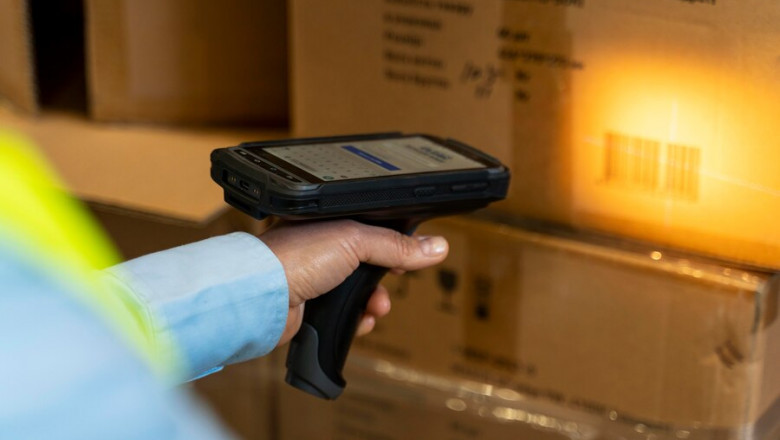views
Introduction
In today's dynamic business landscape, efficient financial management is crucial for success. Whether you're a small business owner, a freelancer, or managing a large enterprise, having the right accounting software can streamline operations, ensure compliance, and provide valuable insights. This comprehensive guide delves into the best accounting software options available in 2025, highlighting their features, benefits, and how they cater to various business needs.
Best Accounting Software
1. QuickBooks Desktop Pro Plus 2024
QuickBooks remains a staple in the accounting software realm, especially for small to medium-sized businesses. The 2024 version offers a lifetime license, eliminating recurring subscription fees. Key features include invoice and payment tracking, expense recording, detailed financial reporting, job costing, fixed asset management, inventory tracking, and bank account synchronization.
2. Sage Accounting
Sage Accounting provides reliable financial tools tailored for small businesses. It offers cloud-based solutions, facilitating real-time collaboration and access. Features encompass invoicing, expense tracking, bank reconciliation, and comprehensive reporting. TechRadar+1Wikipedia+1
3. Moneyspire 2025
Moneyspire caters to both personal finance and small business accounting needs. It supports multiple platforms, including Windows, macOS, Linux, and ChromeOS. The software tracks accounts, loans, bills, investments, and budgets. The Pro edition allows for professional invoice creation and tracking. Wikipedia
4. LedgerSMB
An open-source solution, LedgerSMB is designed for small to medium-sized businesses. It offers a full general ledger, multi-currency support, accounts receivable and payable, project accounting, financial reports, inventory tracking, and fixed assets management. The software is web-based, allowing for both local hosting and cloud deployment. Wikipedia
5. Banktivity
Tailored for macOS and iOS users, Banktivity offers personal finance management with features like budgeting, investment tracking, and multi-currency support. It integrates seamlessly with Apple products, providing a cohesive user experience. Wikipedia
Online Accounting Software
1. QuickBooks Online
QuickBooks Online offers the flexibility of cloud-based accounting, allowing users to access their financial data from anywhere. It supports invoicing, expense tracking, bank reconciliation, and real-time reporting. The platform also integrates with various third-party applications, enhancing its functionality.
2. Sage Business Cloud Accounting
Sage's cloud solution provides tools for invoicing, cash flow management, and financial reporting. Its user-friendly interface and mobile app support make it a popular choice for businesses seeking flexibility and scalability.
3. Moneyspire Cloud
Moneyspire's cloud capabilities allow users to sync their financial data across multiple devices. This feature ensures that users have up-to-date information, whether they're on a desktop, laptop, or mobile device.Wikipedia
4. LedgerSMB Web Interface
LedgerSMB's web-based interface ensures that users can access their accounting data from any device with internet connectivity. This flexibility is particularly beneficial for businesses with remote teams or multiple locations.Wikipedia
Conclusion
Selecting the right accounting software is pivotal for efficient financial management. Whether you prioritize desktop solutions with robust features or cloud-based platforms offering flexibility, the options highlighted above cater to diverse business needs. By leveraging these tools, businesses can streamline their financial processes, ensure compliance, and make informed decisions.
Frequently Asked Questions (FAQs)
1. What factors should I consider when choosing accounting software?
Consider your business size, budget, required features (like invoicing, payroll, inventory management), user-friendliness, scalability, and integration capabilities with other tools you use.
2. Is cloud-based accounting software secure?
Yes, reputable cloud-based accounting software providers implement robust security measures, including data encryption, regular backups, and compliance with data protection regulations.
3. Can I switch from one accounting software to another easily?
Many accounting software solutions offer data import/export features, facilitating the transition. However, the ease of switching can vary, so it's essential to check compatibility and support options.Wikipedia
4. Are there free accounting software options available?
Yes, there are free accounting software options like Wave Accounting and GnuCash. However, they may have limitations in features compared to paid versions.
5. How often should I update my accounting software?
Regular updates are crucial for security and functionality. Cloud-based solutions update automatically, while desktop versions may require manual updates. Always ensure you're using the latest version to benefit from improvements and security patches.














Comments
0 comment